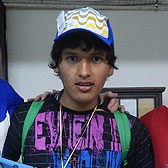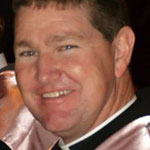I am enjoying this liturgy conference immensely. Much more than I expected.
Each presentation has thrown up challenges and prompted insights which I’ll probably blog about in due time. Right now, though, I’m going to write about Bishop Peter Elliott’s presentation on “the new liturgical movement.”
The good bishop was provocative, as is his wont, which elicited fiery responses from sections of his audience. This is precisely what he wanted, and it was a refreshing change for everyone present, I think. Conversations on the subjects presented are more typically conducted between the like-minded, and against an imagined straw man.
The difference between terrorists and liturgists, so the old joke goes, is that one can negotiate with terrorists. The truth behind the punchline was twice alluded to in recent days. At the start of the conference, Australia’s papal nuncio Archbishop Paul Gallagher quipped that in his seminary days, only two issues drew fierce debate between students: the seminary food, and the Church’s liturgy. At yesterday’s workshop on the Liturgy of the Hours, a religious wag observed that the surest way to start a debate within a religious community is to voice an opinion on how long one should pause at the asterisks in the psalter. The point is, liturgy evokes real passion, and liturgical differences can become ferocious.
During question time after Bishop Elliott’s presentation, one of the conference organizers thanked the bishop for accepting the invitation to present a workshop. After all, a great many of the conference attendees would thoroughly disagree with his well-publicized liturgical opinions.
Why, she asked, are dialogues like this the exception rather than the rule? It was a good question, all the more pertinent in light of Bishop Elliott’s address. Several times during his talk he was interrupted by bellicose questions and comments. In every instance, Bishop Elliot agreed with his interlocutor, added his own anecdotes and insights to validate the questioner’s point, and then furnished a nuanced reply. By no means did people leave Bishop Elliott’s talk in agreement, but they certainly left more enlightened and better informed of opposing views. (This is equally true, I think, of those who are enthused by the new liturgical movement, and those who are dubious of it.)
So why doesn’t this sort of constructive discourse occur more often? Why don’t liturgists “reach across the aisle” more, to use the US congressional metaphor?
There are many answers of course, but Bishop Elliott proffered two at length. One problem, he said, is that official liturgists employed by the diocese can become part of an establishment. Any “Establishment” – whether it’s conservative or progressive – tends to declare and decree, rather than propose and dialogue. Another problem, the bishop suggested, is that the young too quickly write off the old. This observation – a good one I think – was elicited by his questioner’s lament that “the sins of her past” – regrettable innovations she promoted in the headiest days of liturgical experimentation – are still held against her decades later. (Bishop Elliott could only commiserate, and express his own Mea culpa for the liturgical vandalism he wrought in his contributions to The Catholic Worship Book.)
The tenor of Bishop Elliott’s workshop fascinated me because of its broader application beyond the confines of liturgy. It’s no secret – and indeed no surprise when one studies the history of the great reforming councils – that fierce ideological battles have been waged over the implementation of the Second Vatican Council. Liturgists aren’t the only ones who have often declined to “reach across the aisle.”
But perhaps things are changing. Pope Francis has repeatedly called for the rejection of ideology and the embrace of supernatural outlook. References to this call grace many of the pages of the latest issue of the NCP’s The Swag. Author after author expresses regret at the factional impasses of recent decades, and expresses hope in a future more typified by mutual respect and open dialogue. Sadly, there’s scant evidence of that in those same pages. The latest issue of The Swag is as ironically opposed as ever to the NCP’s mottos: “Sign of unity” and “Instrument of peace.” As a proud member of the NCP, I write that with sincere regret, not with smug satisfaction. However I invest real hope in this new rhetoric of dialogue. Eventually, I am sure, reality will match it. Sometimes, the desire to be is as important as becoming, and in any event it’s always the necessary first step.
(People in glass houses shouldn’t throw stones, I know. As editor of the ACCC’s The Priest, I have to attend to the same lofty ideals myself. I hope its readers will keep me to account.)
In the meantime, the Lift Up Your Hearts liturgy conference has given me an idea of what constructive dialogue looks like. People whose differences are passionate and even ferocious can share a room, talk openly about the elephant therein, and consequently leave the room better informed and more enlightened.
This is where grace works I think. This is where the Spirit is free to move.






It strikes me the liturgy is prescriptive as well as being expressive of the best and also the weaknesses of the Church at the particular moment in history. That’s what makes it so real! Perhaps that’s why some people find it too hard to move right along to the present!
Why isn’t there more dialogue? Because some people take their bat and run home saying “I ‘m not going to enter into that dialogue etc. “
As a priest, I read at the beginning of each year, in the instructional pages of the Ordo, that a priest should be careful not to always impose his own preferences with regards to the choices given him in the liturgy, but to consider the needs and the other circumstances of members of the congregation.
There is no where printed, at the beginning of each year, an instruction for the members of the congregation to be likewise understanding of the obligations priests are under with regards to the liturgy.
In fact, each member of the congregation, could, and it is well within the realm of possibility, have a different understanding and therefore different expectations, making them all liturgists.
I’m sure there is a meeting point, well, I know there is a meeting point, Jesus Christ, we trust that in our decisions as priests and our expectations as members of the congregation, we are his instruments.
Dear Fr Mick,
What drew me to Our Lady Star of the Sea West Melbourne – in the midst of dust, banging, temporary facilities, etc. (all restored inside now) was the shining transcendent beauty of the liturgy.
Why?
The priests there simply say the black and do the red. It is unbelievably powerful in its effects and I cannot understand why many, if not most, celebrants seem compelled to improvise, ad lib, perform, detract, add, etc.
All a priest needs to be when he is behind the altar is to be obedient to the rubrics. And solemn.
This is the beauty of truth. Most celebrations of the Eucharist seem to be afflicted by banality.
Just one pew-dweller’s thoughts.
Well if you’re considering the needs and other circumstances (how about being sinners in need of redemption?) then the liturgy should bring them God. It needs to show them that there’s a holy God out there who’s got many mansions in heaven prepared for all who turn to Him in faith and hearty repentance. That there’s a loving redeemer who’s paid for their sins with his blood on the wood of the cross.
I can’t see how anything other than the Vetus Ordo, or a very traditional interpretation of the Novus can achieve these goals.
Hi Fr, thanks for the great blog, as a young Catholic traditionally inclined I find myself constantly in such heated discussions about liturgy – I think it’s because liturgy is the most obvious manifestation of our persuasion and thus like the tip of the ice berg.
Might you write a few words on the particular issues that came up? And the views represented in the future?
Hi Joseph. A few people have requested this, and I do intend to convert my notes into a series of blog posts. It’s presently “year 12 retreat season” though, so I won’t be sitting at my desk until next week.